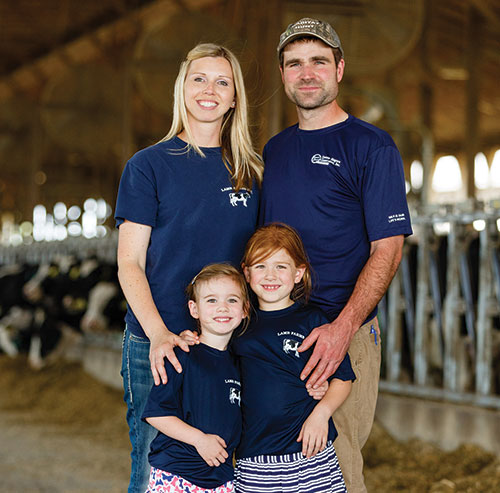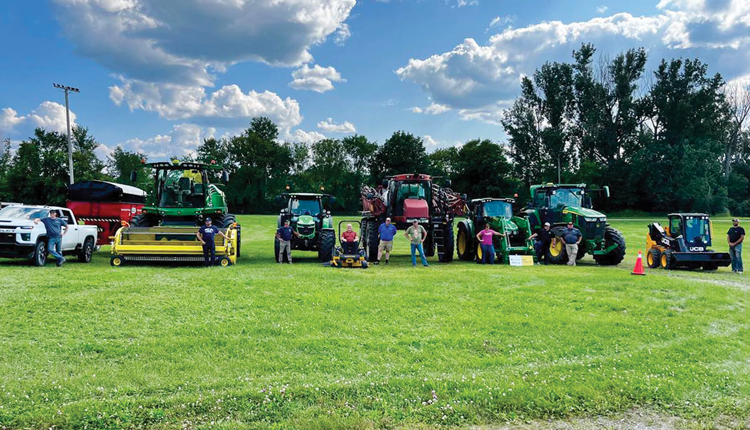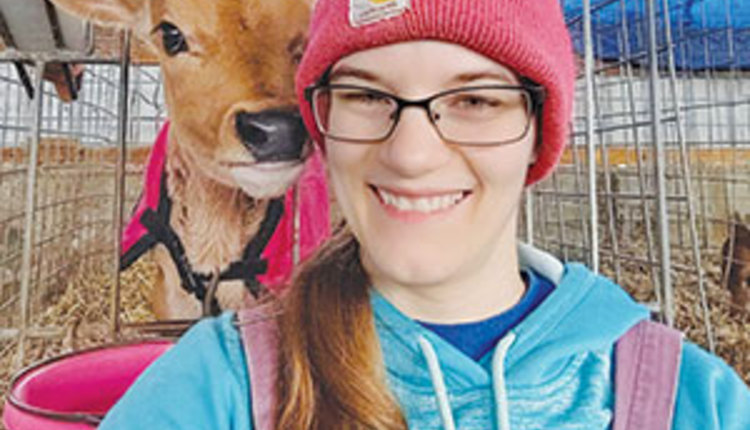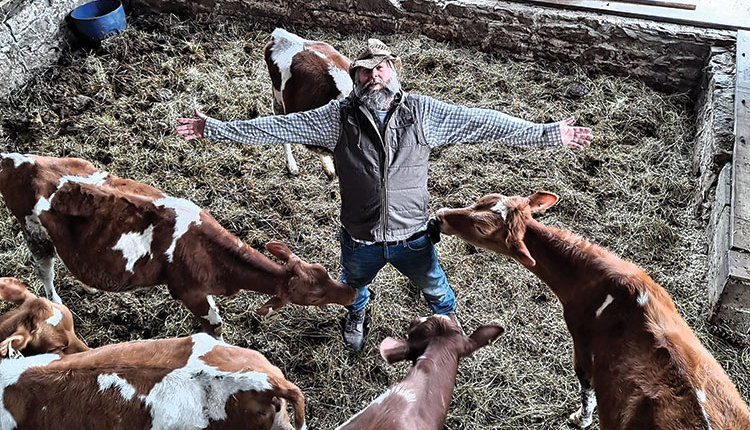Ask a farmer to help promote dairy products, and for many, providing chocolate milk to a school tour, scooping ice cream at a carnival, or bringing a calf to a petting zoo is right up their alley.
Ask them to stand on a busy street in New York City and talk about lattes? Chances are that’s not in many farmers’ comfort zone.

“This was a really neat opportunity to tell our story in a different environment,” Lamb said. “It was a completely different scale than I was accustomed to, however.”
Mystery café
The event, arranged by American Dairy Association (ADA) North East, Dairy Management Inc. (DMI), and McDonald’s, helped promote McDonald’s lattes and coffees on National Coffee Day, September 29. McDonald’s, a dairy checkoff partner, set up a temporary café at the intersection of several busy streets and a subway station. Keeping their name under wraps, they offered free lattes to passing commuters who were happy to stop on the cold, blustery day.
A coffee bean farmer had been invited to be on hand to talk about sustainable practices in coffee farming, and ADA North East could see the benefits of having a dairy farmer there as well.
“It was set up to be a mystery, this up-scale café with free coffees,” Lamb said, “to highlight the flavors and make it look very sophisticated.”
The café was unveiled after several hours, revealing the McDonald’s name. The campaign was part of McDonald’s “food journey” to build awareness of the company’s commitment to quality ingredients and transparency. Dairy is an ingredient in 80 percent of all McDonald’s menu items, including their McCafé beverages.
An eye-opening experience
“People were really interested to hear that my farm supplied the milk in the lattes they were sipping,” she said. “They liked being able to see the face behind the product and thinking about the cows that made the milk.”
Lamb also talked about the sustainable agricultural practices on the dairy, including the farm’s methane digester. “People were very interested in the ‘green power’ of turning manure into electricity,” she said.
She grew up on a small dairy in the Catskill Mountains, closer to the city, but rarely traveled into New York City (NYC). She served as Delaware County Dairy Princess and then as New York State Dairy Princess in 2001, and has long been an advocate for dairy and agriculture.
That passion was reignited when Lamb started attending a local MOPS (Mothers of Pre-Schoolers) group with her oldest daughter. Listening to speakers and attending different events, she could see a need for factual, realistic information about food and farming.
“The speakers were giving out false information about foods, including dairy, which was very frustrating,” she said.
To help balance that, she invited all the MOPS families to the farm for a field day. More than 100 people, adults and children, attended. Since that time, her farm tours and speaking engagements have evolved.
This spring, 16 schools have scheduled trips to the farm with their classes, with students ranging from 3 to 16 years old. Depending on the age of the visitors, Lamb sets up stations so kids and adults can learn and stay engaged during their visit.
Lamb took her two daughters, ages 4 and 6 at the time, to NYC with her, flying down the afternoon before the coffee event. “They had never been to the city before, and it had been years since I had been there as a tourist,” Lamb said. “We had a chance to do some ‘New York City’ things — eat pizza, shop, and travel — which they thought was really fun.”
They stayed with their mom the next day at the café, even helping whip up the lattes for commuters. Beth Meyer, vice president of industry communications with ADA North East, was also on hand to help answer questions.
Lamb said staff members behind the counter also were receptive to talking to a farmer. “It was a really fun time,” she said. “They treated us like we were stars and kept saying how happy they were to have us there to help serve the drinks. It was very cool to engage and share with them as well.”
Told their story
She admits her passion is in talking about cows, but she felt comfortable sharing her story about the farm’s practices.
“They liked hearing about how we use practices to leave the soil healthier for next year’s crops,” she said. “They were very interested in our sustainable practices with land, air, and water.”
With the lattes and coffees being free, it was a guarantee people would stop in for a taste. “A lot of times people think about coffee or lattes, but they don’t think about the dairy part of it,” Lamb added. “We wanted to highlight just how much dairy goes into what they were drinking.” Each McDonald’s 12-ounce latte contains 1 cup of whole milk.
“For me, it reaffirmed my belief in taking every opportunity to tell your story,” she said. “The people I spoke to couldn’t be further removed from agriculture, but they were very receptive to talking to me and learning about how milk travels from the farm to their coffee cup.”
The farm is located between Rochester and Buffalo, both large cities, so the urban traffic has grown over the years. “We are in an agricultural county, and agriculture is still our number one industry,” she said, “but the urban sprawl keeps spreading all the time.”
That sprawl provides opportunities to speak to consumers about farming practices and where their food comes from. Lamb hosts many groups on-farm, speaks to groups and visits schools, and also writes a neighbors’ newsletter to share their story. She also maintains the farm’s social media presence.
“When you have an opportunity to talk to people face to face, it’s a chance to make a connection,” she said. “This New York City event was a different scale than I was used to, but it was a unique opportunity to reach urban consumers.”
For more information on Lamb Farms, visit their webpage at http://lambfarmsinc.net/ or their Facebook page. For more information on ADA North East, visit the website http://www.dairyspot.com/ or their Facebook page.








